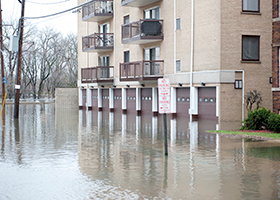How Flood Insurance Helps To Cater To The Requirements Of Climate Change?
Climate change has led to rising sea levels, extreme weather events, and increased flood risks worldwide. Flood insurance plays a crucial role in mitigating financial losses and helping individuals and businesses adapt to climate-related challenges. First Choice Agency provides flood insurance in Queens, NY, Brooklyn, Massapequa, Ozone Park, Babylon, Deer Park and surrounding areas.
- Protection Against Increased Flood Risks

As climate change intensifies, heavy rainfall, hurricanes, and coastal storm surges are becoming more frequent. Flood insurance provides financial protection by covering damages to homes, businesses, and personal property caused by rising water levels.
- Reducing Economic Burden
Flooding can lead to billions of dollars in damages, leaving homeowners and businesses struggling to recover. Without flood insurance, many individuals must rely on limited government aid or personal savings. A comprehensive flood insurance policy ensures quicker and more complete financial recovery.
- Encouraging Climate-Resilient Development
Many flood insurance programs require policyholders to adopt flood mitigation measures, such as elevating structures, using flood-resistant materials, and improving drainage systems. These measures reduce future risks and encourage climate-adaptive construction.
- Supporting Community Recovery
Flood insurance enables faster rebuilding efforts, reducing long-term economic disruptions in affected areas. Insured communities recover more quickly, minimizing business closures, job losses, and housing crises after a disaster.
- Promoting Sustainable Land Use
Insurance risk assessments influence real estate and urban planning. High-risk flood zones may face increased premiums, discouraging development in vulnerable areas. This promotes responsible land use and helps prevent excessive construction in flood-prone regions.
- Encouraging Government and Private Sector Involvement
Governments and private insurers are enhancing flood insurance programs with climate data, risk modeling, and updated policies to reflect changing environmental conditions. Public-private partnerships help expand coverage options and improve resilience strategies.
Conclusion
Flood insurance is a crucial tool in addressing the challenges of climate change. By providing financial protection, promoting risk-reducing strategies, and supporting economic stability, it helps individuals, businesses, and communities adapt to a changing climate and recover more effectively from flood-related disasters.
If you need assistance, we’re just a phone call away.

